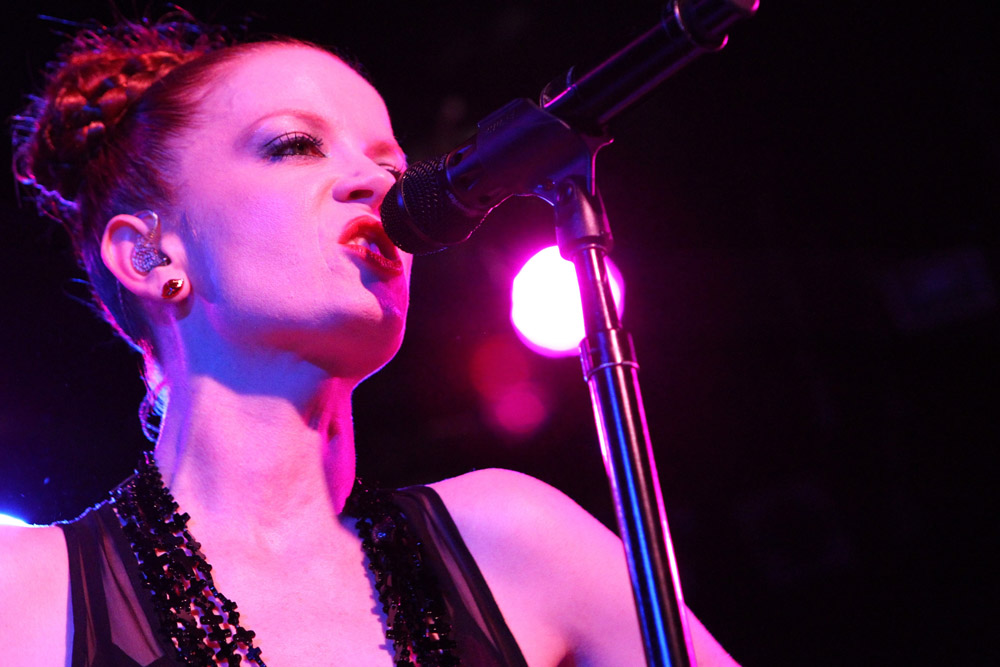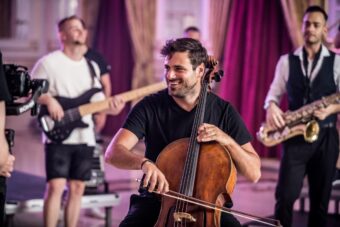What does the album’s title, Not Your Kind of People, mean to you?
It’s a two-fingered salute to people who reject or criticize us. It’s like, “That’s cool. If you’re not into us, fine.” We’re only really interested in people who share our outlook. I mean, that’s our audience, right? The people who fall in love with you musically are the people who connect with what you’re saying and how you say it. Ultimately, it’s about self-acceptance for us. We’re not trying to pretend we’re anything we’re not. We’re not trying to come up with the hippest, coolest sounds on the street. If you like it, come with us. If you don’t, we’re not for you.
What do you think about the idea of your band’s appeal being nostalgic?
I hate nostalgia. I think we’ve made an album that can stand up amongst a lot of records that are being made right now. How other people perceive that is out of our control, and I get that. When I was young, I didn’t necessarily want to listen to anyone over 30. I had no interest in it. There will be tons of young people who don’t want to listen. I totally respect that, but I think there is an audience out there for us if we want it.
You call your fans “darklings.” Where did that come from?
I got to a point where I felt very protective of our fans, felt a kinship with them, and that word resonated. I think it comes from a Robert Browning poem. I have a certain tendency towards the dark that defines me as a singer. I’m not a show-pony girl. I’m not all bright and pink and fluffy. I look at the world with a slight melancholy, always. I think people who are attracted to the band share that. I see death coming and I don’t shirk it.
Where do you think that protectiveness comes from?
It definitely comes from being older. Over the last decade I’ve been struck by how much our music has meant to others. It sounds so hackneyed to say, but it’s true. I used to be very cynical, even embarrassed about it, and now I’m like, “What an amazing privilege to be able to write something that brings somebody comfort or inspires them or changes their way of thinking.” That’s an amazing thing. It’s the best part about being a band.
That darkness you mentioned was a vital part of Garbage. Sometimes you embraced it, sometimes you pushed against it. Has your relationship with that feeling changed?
Seven years on, I’m wiser, more experienced, and way less fearful. I spent so much of my life feeling scared. I don’t know why. I grew up in a nice middle-class family, and nothing majorly traumatic happened to me. But that’s the glorious thing about getting older. The physical deterioration is a little hard to handle, but the fear dissipates and you’re capable of a lot more. Doing the TV show, for instance, I was willing to get up in front of 11 million people and fall flat on my face. I took that risk and it was a pleasant surprise.
Do you think the darkness originated on the schoolyard, in your being bullied as a child?
It was a multitude of things. I was a beacon of attention being the only ginger in the class. People don’t associate red hair, pale skin, and freckles with beauty. Historically, we’ve been persecuted. It’s all animalistic. It’s a weak genetic trait that’s slowly being eradicated from the gene pool. Also, I was a middle child, which I think gives you serious identity issues. And my father was my Sunday school teacher, so it was the perfect storm.
You’ve said the feeling of being an outsider continued into adulthood. You’ve struggled with body dysmorphia. Has any of that gotten better or gone away?
It’s just under the surface. I’m a cutter and I will be for life. The sensation of never feeling good enough or pretty enough will always be there. It’s a constant dialogue, and you just learn to be more powerful than that other voice. When you hear it come up, you shut it down. In terms of fitting in, you know, I don’t have a lot of armor up. I’m a raw nerve and it’s really uncomfortable for a lot of people. There have been so many times where I’m at a dinner party and I’ll say something and you can feel the free fall as silence engulfs the room. It’s not everybody’s way of moving through the world. I need to dial it down a lot.





